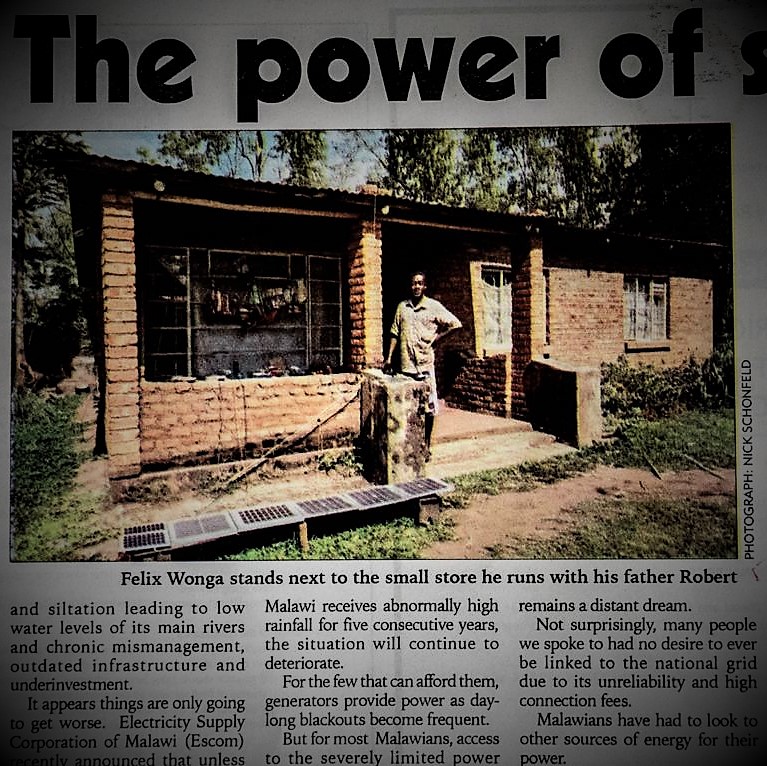
Making do with what you have. The age-old idiom rings true in many parts of the world.
But what if you have nothing to make do with and the situation is so dire that government, the economy or foreign aid are no longer able to solve it?
Malawi’s current energy crisis eclipses everything and it is difficult to find an area not impacted by the lack of power in the country.
Business, education, healthcare, transport, air travel, tourism. When the lights go out, everything is affected. Factories close, children cannot study, travel becomes dangerous.
According to a United States Agency for International Development (UsAid) report, roughly 10 percent of the population are connected to the grid in rural areas, this falls to five percent.
Malawi has an on-grid capacity of 351 megawatts (MW). Neighbours Zimbabwe and Zambia have 2400MW and 2650MW respectively.
Almost all of it is generated from hydro plants on the dwindling Shire River.
Malawians increasingly import solar panels or generators, thanks to repeated dry spells and siltation leading to low water levels of its main rivers and chronic mismanagement, outdated infrastructure and underinvestment.
It appears things are only going to get worse. Electricity Supply Corporation of Malawi (Escom) recently announced that unless Malawi receives abnormally high rainfall for five consecutive years, the situation will continue to deteriorate.
For the few that can afford them, generators provide power as day-long blackouts become frequent.
But for most Malawians, access to the severely limited power remains a distant dream.
Not surprisingly, many people we spoke to had no desire to ever be linked to the national grid due to its unreliability and high connection fees.
Malawians have had to look to other sources of energy for their power.
Grassroots efforts to generate electricity locally, through solar, wind, and biogas are springing up everywhere.
International aid efforts aside, these local projects are beginning to make a tangible difference. Green Malata, for example, the entrepreneurial training village that Nick and I visited earlier this year, now teaches its students how to make their own solar panels, working with biogas, and operating wind turbines.
It also rents out solar batteries and is installing basic biogas facilities in surrounding villages.
It is amazing to see how a few light bulbs can positively impact the lives of those who can now read, study or cook under them.
What’s more, a steady supply of affordable and reliable power has huge implications for the future.
The ability to study after dark leads to a better educated generation of Malawians, entrepreneurs can run their business for longer and factories do not lose out on productivity, meaning they can employ more people and pay wages.
A little power can go a long way in Malawi.
